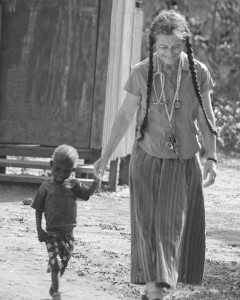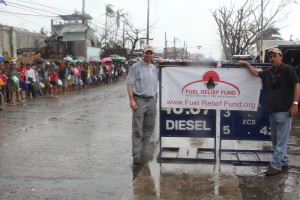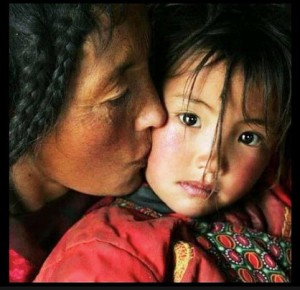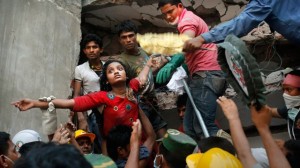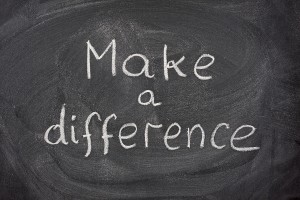 The William and Flora Hewlett Foundation announced today that their eight-year, $12 million effort to support the “effective philanthropy” movement did not achieve its goals. This effort aimed to persuade individual donors to give greater consideration to financial and short-term metrics; it also de-emphasized harder to measure impact such as influence on social and political change, hope and joy, mitigation of pain and suffering, and even donor satisfaction. The foundation admitted that while the effort “succeeded at producing more information about charity performance [think Charity Navigator and Give Well], it did little to change donors’ decisions: They continued to give with their hearts, not their heads.” Commenting on the news, Jan Masaoka, Executive Director of California Association of Nonprofits explained that using Charity Navigator and other simplistic ratings never was “using your head.” She said, “Your head ought to tell you that unproven, inaccurately calculated metrics for the wrong things are an un-smart ways to choose where to donate.” To be clear, I always review nonprofit tax returns available online at Guidestar when performing due diligence. But given the large number of worthy charities that have been unfairly tarnished by simplistic assessments, and the misconceptions these ratings have fostered, I am relieved that the research about their inefficacy is now available and being acted upon.
The William and Flora Hewlett Foundation announced today that their eight-year, $12 million effort to support the “effective philanthropy” movement did not achieve its goals. This effort aimed to persuade individual donors to give greater consideration to financial and short-term metrics; it also de-emphasized harder to measure impact such as influence on social and political change, hope and joy, mitigation of pain and suffering, and even donor satisfaction. The foundation admitted that while the effort “succeeded at producing more information about charity performance [think Charity Navigator and Give Well], it did little to change donors’ decisions: They continued to give with their hearts, not their heads.” Commenting on the news, Jan Masaoka, Executive Director of California Association of Nonprofits explained that using Charity Navigator and other simplistic ratings never was “using your head.” She said, “Your head ought to tell you that unproven, inaccurately calculated metrics for the wrong things are an un-smart ways to choose where to donate.” To be clear, I always review nonprofit tax returns available online at Guidestar when performing due diligence. But given the large number of worthy charities that have been unfairly tarnished by simplistic assessments, and the misconceptions these ratings have fostered, I am relieved that the research about their inefficacy is now available and being acted upon.
Charity Ratings Suffer a Blow
Unsung Heroes of Compassion 2014
Wisdom in Action announced today the recipients of the 2014 Unsung Heroes of Compassion award—51 individuals from 18 countries who work tirelessly to ease the suffering of others, create opportunities for those less fortunate, and bring life-saving care to war-torn regions of the world. Later this month, the “unsung heroes” will be acknowledged with a blessing from the Dalai Lama at a special event I am helping to produce. I encourage you to read a bit about these individuals in the short narratives I wrote and/or edited with D’Arcy Richardson and Lindsay Green-Barber. If time is short, start with Jill Seaman, Mazen Faraj, or Budd McKenzie, just a few of the many I cannot stop thinking about. The “unsung heroes” have made their lives shining examples of goodness, lighting the way for us in places where hope must overcome hopelessness and generosity illuminates the only path to safety. I hope you, too, will find inspiration in their stories.
His Unconquerable Soul
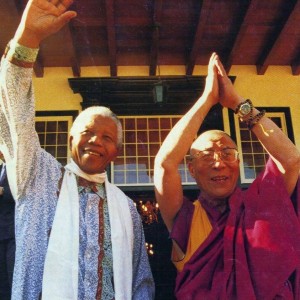 While in prison, Nelson Mandela found strength in the words of William Ernest Henley’s poem Invictus:
While in prison, Nelson Mandela found strength in the words of William Ernest Henley’s poem Invictus:
“Out of the night that covers me, Black as the pit from pole to pole, I thank whatever gods may be, For my unconquerable soul.”
My deepest gratitude to Mr. Mandela for being such a generous teacher and soul. His passing makes me all the more grateful that in just two months, I will again be seeing my other great teacher, His Holiness the Dalai Lama.
Fueling Relief
Torn again about which aid groups to support following a major natural disaster—this time Typhoon Naiyan—I felt compelled by a story I heard tonight on NPR about Fuel Relief Fund, the only organization in the world that provides free fuel after a disaster. Launched in 2005 after Hurricane Katrina, and tested in 2010 in Haiti, and in 2011 in both Japan and Turkey, the fund purchases fuel as close to the disaster site as possible and gives it away to any individual or humanitarian group that needs it. Without Fuel Relief Fund, vehicles that provide aid, food, medical attention and other services to people in towns and villages devastated by Haiyan cannot move, generators cannot run, and the most basic of emergency services grind to a halt. Because the UN, Red Cross, UNICEF, Doctors without Borders, and many others are relying on Fuel Relief Fund today, I thought you’d also want to hear of their work.
International Day of the Girl
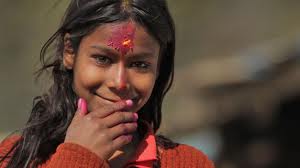 Today is International Day of the Girl, established by the United Nations to recognize girls’ rights and the unique challenges girls face around the world. Inspiring stories and videos are arriving in my inbox from all over the world, including this op-ed about child marriage in Yemen by Rothna Begum, a women’s rights researcher for Human Rights Watch and this fantastic 1 ½ minute video from Krishna Chaudhary, a girl who was freed from child slavery by the Nepal Youth Foundation. The U.N. says, “The fulfillment of girls’ right to education is first and foremost an obligation and moral imperative…yet girls in many countries are still unable to attend school and complete their education due to safety-related, financial, institutional and cultural barriers.” Education is the one consistent positive determinant of practically every desired development outcome, from reductions in mortality and fertility, to poverty reduction and equitable growth, to social norm change and democratization. To learn more #dayofthegirl
Today is International Day of the Girl, established by the United Nations to recognize girls’ rights and the unique challenges girls face around the world. Inspiring stories and videos are arriving in my inbox from all over the world, including this op-ed about child marriage in Yemen by Rothna Begum, a women’s rights researcher for Human Rights Watch and this fantastic 1 ½ minute video from Krishna Chaudhary, a girl who was freed from child slavery by the Nepal Youth Foundation. The U.N. says, “The fulfillment of girls’ right to education is first and foremost an obligation and moral imperative…yet girls in many countries are still unable to attend school and complete their education due to safety-related, financial, institutional and cultural barriers.” Education is the one consistent positive determinant of practically every desired development outcome, from reductions in mortality and fertility, to poverty reduction and equitable growth, to social norm change and democratization. To learn more #dayofthegirl
In the Presence of Goodness
 Marc Benioff spoke at the Stanford Center on Philanthropy and Civil Society and knocked my socks off. Benioff, founder and CEO of Salesforce, spoke of the moral imperative to help others. He walks the talk. In 2010, he and his wife made a $100 million gift to UCSF Children’s Hospital. At Salesforce, Benioff pioneered the 1/1/1 Integrated Philanthropic Model, by which companies contribute 1 percent of profits, 1 percent of equity, and 1 percent of employee hours to the communities they serve. At the time he launched the 1/1/1 model, Salesforce had no profits, no equity and no employees. Over the past 13 years, Benioff has overseen $40 million dollars in corporate grants and 400,000 hours of donated employee time. “When it comes down to it, philanthropy isn’t just about big gifts,” he says. “It’s about participation. It’s about the grace that comes from working together, the grace that connects us, and that connects everything together. Nothing feels better.” (P.S. For more philanthropic inspiration, follow my posts by subscribing below to this home page.)
Marc Benioff spoke at the Stanford Center on Philanthropy and Civil Society and knocked my socks off. Benioff, founder and CEO of Salesforce, spoke of the moral imperative to help others. He walks the talk. In 2010, he and his wife made a $100 million gift to UCSF Children’s Hospital. At Salesforce, Benioff pioneered the 1/1/1 Integrated Philanthropic Model, by which companies contribute 1 percent of profits, 1 percent of equity, and 1 percent of employee hours to the communities they serve. At the time he launched the 1/1/1 model, Salesforce had no profits, no equity and no employees. Over the past 13 years, Benioff has overseen $40 million dollars in corporate grants and 400,000 hours of donated employee time. “When it comes down to it, philanthropy isn’t just about big gifts,” he says. “It’s about participation. It’s about the grace that comes from working together, the grace that connects us, and that connects everything together. Nothing feels better.” (P.S. For more philanthropic inspiration, follow my posts by subscribing below to this home page.)
Trying to be a little kinder
Today I received an email from Tomohiro, a man who lives in Tokyo and works as a program manager for an NGO delivering simple, life-changing technologies designed for the developing world. Tomo is one of 50 men and women from around the world who will be honored by the Dalai Lama in February 2014 as “Unsung Heroes of Compassion,” individuals who compassionately and selflessly care for others with no expectation of recognition or reward. I had the privilege of writing about the 50 unsung heroes honored in 2001, 2005 and 2009.
This year, as an event co-producer, I am getting to know and support another 50 honorees. When I asked Tomo to share something that inspires him in his very difficult work he sent me this by Aldous Huxley: “It’s a bit embarrassing to have been concerned with the human problem all one’s life and to find at the end that one has no more to offer by way of advice than ‘Try to be a little kinder.‘”
Scattered far and wide, Tomo and the unsung heroes of compassion are definitely my lost tribe.
Meet Gino Strada
 As a foundation advisor, one of my greatest joys is being introduced to the work of individuals who defy great odds to accomplish truly great things. Gino Strada is such a man. Sixty-five years old, Strada is an Italian surgeon who has spent more than twenty years “living uncomfortably in some of the worst places on earth.” He has carried out 30,000 operations in conflict zones such as Afghanistan, Sudan and Cambodia. And Emergency, the NGO he founded, established and operates 47 healthcare centers worldwide to provide free, high-quality medical care to “desperate people caught in the crossfire of war, 90% of whom are civilians, and the majority of whom are poor and have nowhere else to go.” A documentary short about Emergency’s Salam Centre, Open Heart, was nominated for an Oscar this year and a recent article in The Guardian offers insight into the humane philosophy that motivates and sustains him in his tireless work.
As a foundation advisor, one of my greatest joys is being introduced to the work of individuals who defy great odds to accomplish truly great things. Gino Strada is such a man. Sixty-five years old, Strada is an Italian surgeon who has spent more than twenty years “living uncomfortably in some of the worst places on earth.” He has carried out 30,000 operations in conflict zones such as Afghanistan, Sudan and Cambodia. And Emergency, the NGO he founded, established and operates 47 healthcare centers worldwide to provide free, high-quality medical care to “desperate people caught in the crossfire of war, 90% of whom are civilians, and the majority of whom are poor and have nowhere else to go.” A documentary short about Emergency’s Salam Centre, Open Heart, was nominated for an Oscar this year and a recent article in The Guardian offers insight into the humane philosophy that motivates and sustains him in his tireless work.
Meet America’s Worst Charities
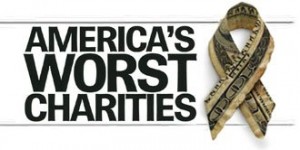 Today, The Center for Investigative Reporting and The Tampa Bay Times published “America’s Worst Charities,” the first in a must-read investigative series about charities that “plead for financial support, while lying to donors about where their money goes. These nonprofits adopt popular causes or mimic well-known charity names that fool donors and rake in cash, year after year.” For example, number one on the list of the 50 worst begins with Kids Wish Network, a nonprofit that raises millions of dollars annually in the name of dying children and their families, and spends less than 3 cents on the dollar helping kids. “Most of the rest gets diverted to enrich the charity’s operators and the for-profit companies Kids Wish hires to drum up donations. In the past decade alone, Kids Wish has channeled nearly $110 million donated for sick children to its corporate solicitors. An additional $4.8 million has gone to pay the charity’s founder and his own consulting firms.” This reporting is eye-opening and, if there is any justice in the world, will be the first step in cracking down on this kind of abuse.
Today, The Center for Investigative Reporting and The Tampa Bay Times published “America’s Worst Charities,” the first in a must-read investigative series about charities that “plead for financial support, while lying to donors about where their money goes. These nonprofits adopt popular causes or mimic well-known charity names that fool donors and rake in cash, year after year.” For example, number one on the list of the 50 worst begins with Kids Wish Network, a nonprofit that raises millions of dollars annually in the name of dying children and their families, and spends less than 3 cents on the dollar helping kids. “Most of the rest gets diverted to enrich the charity’s operators and the for-profit companies Kids Wish hires to drum up donations. In the past decade alone, Kids Wish has channeled nearly $110 million donated for sick children to its corporate solicitors. An additional $4.8 million has gone to pay the charity’s founder and his own consulting firms.” This reporting is eye-opening and, if there is any justice in the world, will be the first step in cracking down on this kind of abuse.
What Really Collapsed in Bangladesh
Yes, a garment factory that manufactures products for international clothing companies collapsed outside of Dhaka, Bangladesh, killing more than 800 workers in the deadliest disaster ever in the garment industry. But what really collapsed should be any illusions we have about the true costs to human rights and the environment of the cheap clothes produced by big chains such as H&M and Wal-Mart. I believe we owe it to ourselves—and especially to our children—to understand the ways in which our voracious demand for cheap goods is perpetuating the conditions that allow for such a tragedy to occur, and is helping to keep the women and children who work in these factories impoverished and in debt in spite of their labor. Two resources helping me in this regard are Elizabeth Cline’s Overdressed: The Shockingly High Cost of Cheap Fashion and GoodGuide.com, a very easy online tool for learning about the true costs of our favorite products.
